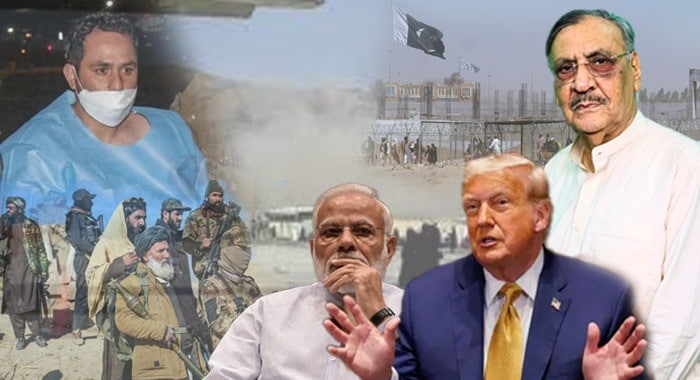The recent arrest of Sharifullah, the key orchestrator of the Kabul Airport bombing, an attack that killed scores of civilians and U.S. personnel during the chaotic withdrawal from Afghanistan in 2021, is more than just a tactical success for Pakistan. It is a compelling reaffirmation of our long-standing, zero-tolerance policy toward terrorism in all its forms.
For decades, Pakistan has been one of the biggest victims of terrorism, not its benefactor. We have buried over 80,000 of our own, from schoolchildren to soldiers, in the struggle against militancy. Unlike other states that manipulate non-state actors to achieve geopolitical aims, Pakistan has consistently chosen sacrifice, restraint, and accountability.
Sharifullah’s capture isn’t the first time Pakistan has acted decisively. During the Trump administration, we apprehended and handed over another high-value target upon Washington’s request, an act that the U.S. itself publicly acknowledged. Our cooperation with international stakeholders in counter-terrorism is strategic, sincere, and ongoing.
This arrest further validates Pakistan’s operational capability, as well as its political will to confront terrorism, even when the suspects are not directly threatening Pakistan’s own territory. Sharifullah was wanted by the United States, not Islamabad, but we still ensured his apprehension and cooperation in the process. That’s what real partnership looks like.
Ironically, while Pakistan takes concrete actions against terror, India continues to wage a campaign of duplicity and misinformation. From falsely blaming Pakistan for incidents like Pulwama or Pahalgam, to orchestrating its own acts of violence and attributing them to Islamabad, India’s approach is textbook propaganda.
Moreover, credible international reports now link India’s intelligence apparatus, RAW, to transnational killings, including the assassination of Sikh leaders in Canada and the U.S., acts that have prompted open investigations and legal action. The same RAW has long funded militant proxies like the TTP and BLA, which have killed thousands inside Pakistan.
India’s strategy is clear: destabilise Pakistan, discredit it globally, and deflect attention from its own repressive governance, particularly in occupied Kashmir.
The evolving dynamics in Afghanistan post-2021 withdrawal have introduced new complexities. While Pakistan has engaged diplomatically with the Taliban-led government, we continue to face cross-border threats from TTP factions operating with impunity inside Afghan territory, many of whom are funded by foreign intelligence services, including India’s.
Despite these provocations, Pakistan has exercised strategic maturity, pressing Kabul diplomatically while securing our own frontiers militarily. Our goal remains peace in the region, not domination, and certainly not interference.
While the world keeps a close eye on Islamist extremism, it largely ignores the fast-growing threat of Hindu nationalism in India. Under the RSS-BJP alliance, India has transformed into a majoritarian state, where over 250 million Muslims face systemic exclusion.
Modi’s government, in its third term, has failed to appoint even a single Muslim minister. Muslims in India are lynched, their homes demolished, and their voices silenced. If extremism is defined by ideological hate, then the rise of Hindu fundamentalism deserves global scrutiny, no less than the Taliban or Daesh.
Pakistan’s struggle is not just one of defence, it’s a war for credibility, sovereignty, and stability. We have banned extremist outfits, enforced financial sanctions, and conducted relentless operations across the country, from North Waziristan to Gwadar.
Our Foreign Office’s statement following Sharifullah’s arrest was not diplomatic grandstanding, it was a message: Pakistan acts; it does not posture.
The world must now re-calibrate its assumptions. The arrest of Sharifullah is not an isolated event; it is a microcosm of a consistent, principled national policy. In a region full of double-dealers and information warriors, Pakistan stands apart as a nation that has paid in blood, and continues to act with integrity.
If global peace is truly the goal, then it’s time to recognize who is fighting the war on terror, and who is merely profiting from its chaos.





